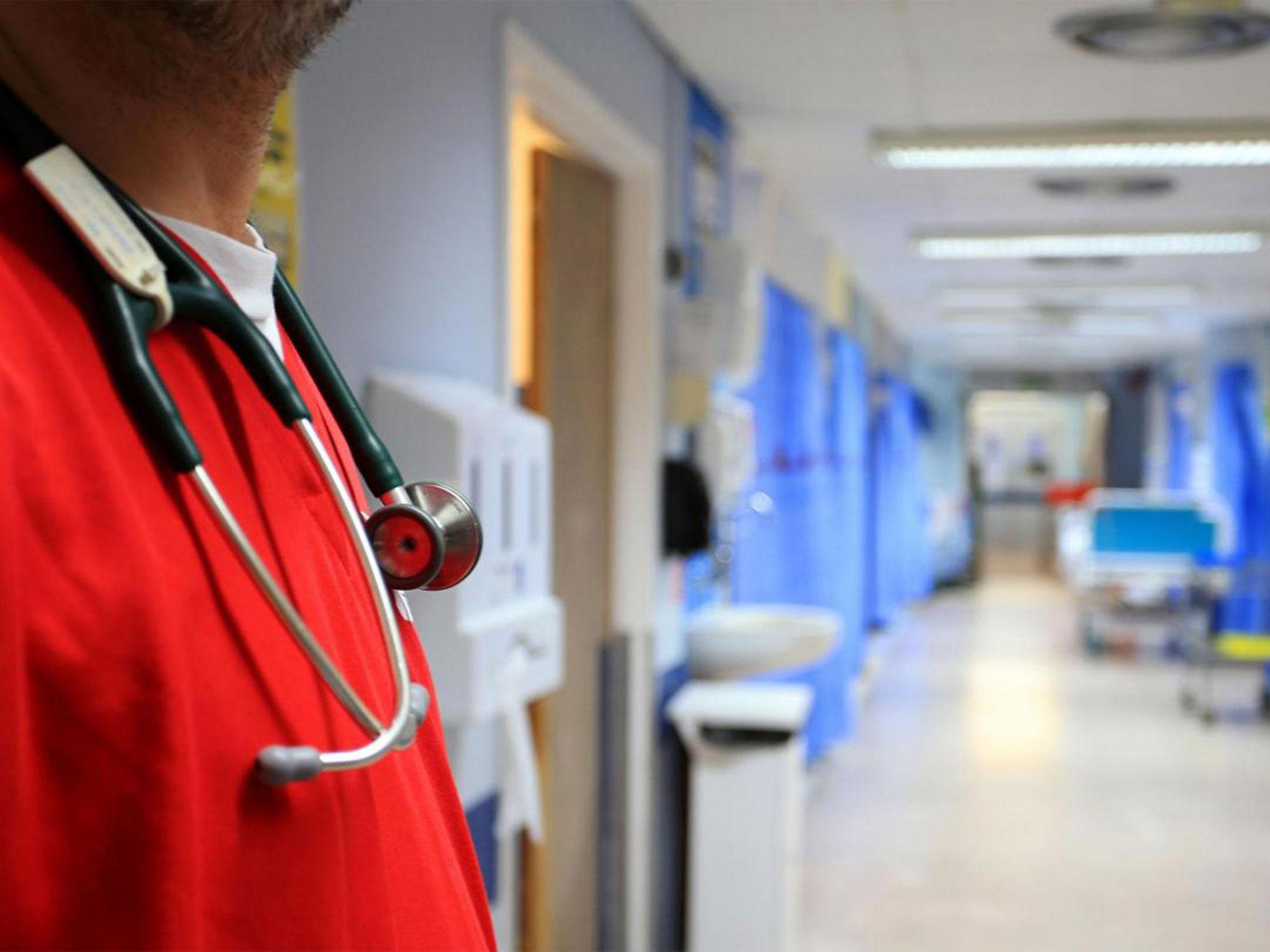EU referendum: What effect would Brexit really have on the NHS?
As one of the most authoritative voices on the NHS, Dr Sarah Wollaston’s defection from Leave to Remain side has put each side’s claims about the health service back into the spotlight

Your support helps us to tell the story
From reproductive rights to climate change to Big Tech, The Independent is on the ground when the story is developing. Whether it's investigating the financials of Elon Musk's pro-Trump PAC or producing our latest documentary, 'The A Word', which shines a light on the American women fighting for reproductive rights, we know how important it is to parse out the facts from the messaging.
At such a critical moment in US history, we need reporters on the ground. Your donation allows us to keep sending journalists to speak to both sides of the story.
The Independent is trusted by Americans across the entire political spectrum. And unlike many other quality news outlets, we choose not to lock Americans out of our reporting and analysis with paywalls. We believe quality journalism should be available to everyone, paid for by those who can afford it.
Your support makes all the difference.With the defection of Dr Sarah Wollaston, the Conservative MP for Totnes, a former GP and, as chair of the Health Select Committee, one of the most authoritative voices on the NHS, from the Leave side to the Remain side, the rival campaigns’ claims about the NHS have come back into the spotlight.
What does the Leave campaign say?
They have put the NHS at the heart of their argument. They have pledged to redirect £5.2 billion of Britain’s annual spending on the EU to the NHS. They also say that migration from the EU has put increased pressure on the health service, lengthening queues at A&E and at the GP surgery. They claim that Turkey and three other countries will soon join the EU, adding to the number of migrants.

And the Remainers?
Remain campaigners in general have not focused on the NHS as much, but say that the likelihood of an economic shock for the UK in the event of Brexit would mean the Government would have less money to fund the service. They also point to the 130,000 non-British EU citizens who work in health and social care, whose visa status would be uncertain if the UK left the EU.
So who is telling the truth?
Let’s look at the claims of the Leave side first. Their pledge last week to put £100m a week into the NHS - £5.2bn a year – came after weeks in which they were suggesting they could give £350m a week to the NHS. That’s the full sum they claimed that Britain paid to the EU each week. In reality, after Britain’s rebate and EU funding to the UK is subtracted, we pay around £150m – enough to cover the £100m a week promise.
However, that’s not the whole picture. Most independent economists think that Brexit would lead to an economic shock for the country that would leave the Government between £20bn and £40bn a year worse off by 2020, according to the respected Institute of Fiscal Studies (IFS). That’s between £380m and £770m a week – more than wiping out any dividend we get from leaving the EU.
If these projections prove right, then yes there’s nothing to stop a post-Brexit Government giving £100m more a week to the NHS – but they would have to do so while very severely cutting other areas of Government expenditure – be it education, defence, welfare or something else.
Dr Wollaston, who initially backed Leave, now says she anticipates an economic penalty from Brexit, not a dividend, from which the NHS would suffer like any publicly-funded service.
What about migration?
It’s common sense that an increased population increases demands on the health service. Net migration from the EU was 184,000 last year and similarly high in recent years. More people in the country means more people who may need healthcare. In this sense, the Leave campaign has a point about the EU and the NHS.
But it’s more complicated than that.
First of all, we have a publicly-funded healthcare system. It is paid for by taxpayers. About 78 per cent of working age EU migrants in the UK are in work (a higher proportion than among UK nationals), so most are paying tax and contributing to the NHS – in theory making IT better able to cope with the higher numbers. Migrants are also more likely to be young and fit so less likely to need the NHS.
What’s more, 130,000 EU citizens work in our health and care service. You often hear Remain campaigners say you are more likely to be cared for by a migrant than have to wait in an NHS queue behind one. Five per cent of the UK population are EU citizens from other countries (2014 figures), compared to 10 per cent of the NHS workforce – so it’s true.
Migration has not been the biggest factor increasing pressure on the NHS in recent years – it’s been an ageing population, with patients more likely to suffer long-term conditions like heart disease, cancer, respiratory diseases and dementia as they age.
As for the chances of Turkey and other countries joining the EU and adding five million to the population – this is hotly disputed, with some EU states strongly opposed to Turkish accession, and a consensus required for it to happen.
What does the NHS say about Brexit?
Simon Stevens, the chief executive of NHS England, has warned that the NHS could be hit by the effect of Brexit on the economy. “It would be very dangerous if at precisely the moment the NHS is going to need extra funding actually the economy goes into a tailspin and that funding is not there,” he said.
And what about NHS staff?
The main trade unions, the British Medical Association and the Royal College of Nursing, are not taking an official position, although the BMA produced a document for doctors on EU issues which listed many more pros than cons for the NHS, the profession and the nation’s health emanating from our EU membership. The Royal College of Physicians, the doctors professional body – slightly different to a trade union – has backed a Remain vote, as has the Royal College of Midwives.
What’s the verdict?
So much of what’s good or bad for the NHS comes back to money and funding – it pays for the staff, the buildings, the medicine, the machines and everything else.
The health service is currently in a financial crisis, with nine in 10 hospitals overspending as a result of years of funding being squeezed.
This is a Government choice, but it is safe to assume that with diminished public funds – as most independent economists, including the respected IFS say we would have in the event of Brexit – the NHS would take another hit if we left the EU.
On migration, the argument is more balanced, but the weight of evidence seems to show the NHS has been a net beneficiary of EU migration. The situation after a Brexit vote would depend heavily upon the arrangements made for EU citizens already working in the UK. Vote Leave have said their citizenship would be respected, and have also hinted that more non-EU migrants could take the place of EU ones. But the idea that migrants are over-running the NHS and causing its problems is not supported by evidence.

The EU referendum debate has so far been characterised by bias, distortion and exaggeration. So until 23 June we we’re running a series of question and answer features that explain the most important issues in a detailed, dispassionate way to help inform your decision.
What is Brexit and why are we having an EU referendum?
Will we gain or lose rights by leaving the European Union?
What will happen to immigration if there's Brexit?
Will Brexit make the UK more or less safe?
Will the UK benefit from being released from EU laws?
Will leaving the EU save taxpayers money and mean more money for the NHS?
What will Brexit do to UK trade?
How Brexit will affect British tourism
What will Brexit mean for British tourists booking holidays in the EU?
Will Brexit help or damage the environment?
Join our commenting forum
Join thought-provoking conversations, follow other Independent readers and see their replies
0Comments